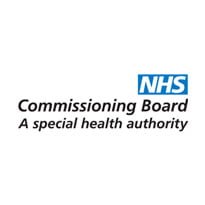DH expects 25-35 CSOs in England
- 1 February 2012

The Department of Health has estimated that there will be between 25 and 35 commissioning support organisations in the reorganised NHS in England – equivalent to one for every two primary care trust clusters.
Details on the future shape of commissioning support have been included in letters and factsheets sent to NHS staff yesterday, while a revised final version of guidance on commissioning support goes to the NHS Commissioning Board tomorrow.
The factsheet on commissioning support says early indications suggest there may be around 25 to 35 local commissioning support services, while there are 51 PCT clusters.
It adds: “These numbers will be influenced by a number of factors including customer support for the services and a viable and affordable business model.”
The factsheet does not set out how many commissioning support staff will be employed in each service.
It says this will depend on how clinical commissioning groups decide to operate and the extent to which they carry out activities in-house and share or buy-in services.
It makes it clear that NHS commissioning support services will be expected to adopt freestanding models by April 2016.
In the meantime, the NHS Commissioning Board will host the services and become the employer of CSS staff.
Barbara Hakin, national managing director of commissioning development, is to present a paper to tomorrow’s NHS Commissioning Board outlining revised guidance on commissioning support, which is due to be published on Friday.
Hakin will tell the board the revised guidance includes changes to allay concerns about the commercial approach to commissioning support raised when the draft guidance was published and to emphasise the potential role of local authorities in commissioning support.
In a paper to the board, Hakin says enabling commissioning support services to be hosted by the NHS Commissioning Board for three years will give NHS staff time to develop effective and efficient services that will make them sustainable in the long term.
Hakin’s paper says that the revised guidance reaffirms CCGs right to chose local commissioning support services.
"But during the transition these decisions will need to be made carefully and sensitively between CCGs, SHA and PCT clusters so that HR and other operational implications can be managed appropriately.”
The guidance says an alternative to NHS Commissioning Board hosted support is CCG ‘shared services’.
However, it says that if this effectively becomes hosting it will be subject to similar commissioning support assurance tests through the CCG authorisation process.
The guidance also says that CCGs will be able to produce specific products from the independent sector through PCT clusters before April 2013.
However, when they become established as statutory bodies they will need to “use the proper procurement processes where there is any change to these contracts and that if the changes involve significant value the process will take several months.”
The DH says it is setting up a Business Development Unit to assure the quality and calibre of NHS commissioning support services and ensure the requirements of emerging CCGs are met.
The DH plan is for NHS CSS outline business plans to be developed by March this year, for CSS leaders to be in place by April and for full business plans to be completed by August.
It says final decisions about whether commissioning support services are fit to progress to a hosted option will be made by the end of October and staff will be transferred from October will full service level agreements between CCGs and CSSs in place by March 2013.




